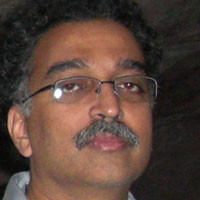Prof. Anand V. Swamy writes a heartfelt account of how Prof. Ashok Kotwal came to influence him.
Ashok Kotwal was a superb economist, and a kind and generous person. I realised the former very early; reading his work in the mid 1980s. The latter came more slowly.
As a Ph.D. student I struggled with two intellectual influences that seemed in tension: neoclassical economics, which focussed on the behaviour of an individual, and Marxist economics, with its focus on class. Eswaran and Kotwal’s paper on access to capital and agrarian class structure (Economic Journal, 1986) was an eye-opener – fresh and exciting work which showed how to connect individual decision-making and political economy. Another paper with Eswaran, ‘A Theory of Contractual Structure in Agriculture’ (American Economic Review, 1986) was the most compelling piece in an enormous literature. So, by the time I was close to Ph.D. completion in the early 1990s, I was a fan.
Around then Eswaran and Kotwal wrote a short book called Why Poverty Persists in India (eventually published by Oxford University Press, 1994). I had been in touch with Ashok about his earlier work, and he sent me the manuscript for comments. I did the best I could with a brilliant book. He responded by saying these were the best comments he had received. I knew he was just being kind, but I was grateful anyway.
We stayed in touch and in the early 2000s when Ashok was visiting Dalhousie University, he invited me to give a talk. He asked me to stay with him, for 2-3 days. He and Truus and their daughters made me at home as though I was an old family friend. It was also an opportunity to chat about so many things. Ashok told me that, as far he was concerned, his best paper was not his most famous paper. He was most proud of ‘A Theory of Real Wage Growth in LDCs’ (also with Eswaran; Journal of Development Economics, 1993), which was the analytical core of Why Poverty Persists in India. This was his most real-world policy-relevant paper, he said, and he was right.
Ashok encouraged me to pursue my interest in economic history, which turned out to be excellent advice. Over time I realised I was a member of a fan club – Ashok had mentored many people in his mellow and non-pushy way. He looked for the best in people and their work, and encouraged it.
Ashok’s major accomplishment of his later years was Ideas for India, a now indispensable resource. It was the logical culmination of a career focussed on India’s economic betterment.
I feel very fortunate to have known him.




 05 May, 2022
05 May, 2022 




Comments will be held for moderation. Your contact information will not be made public.